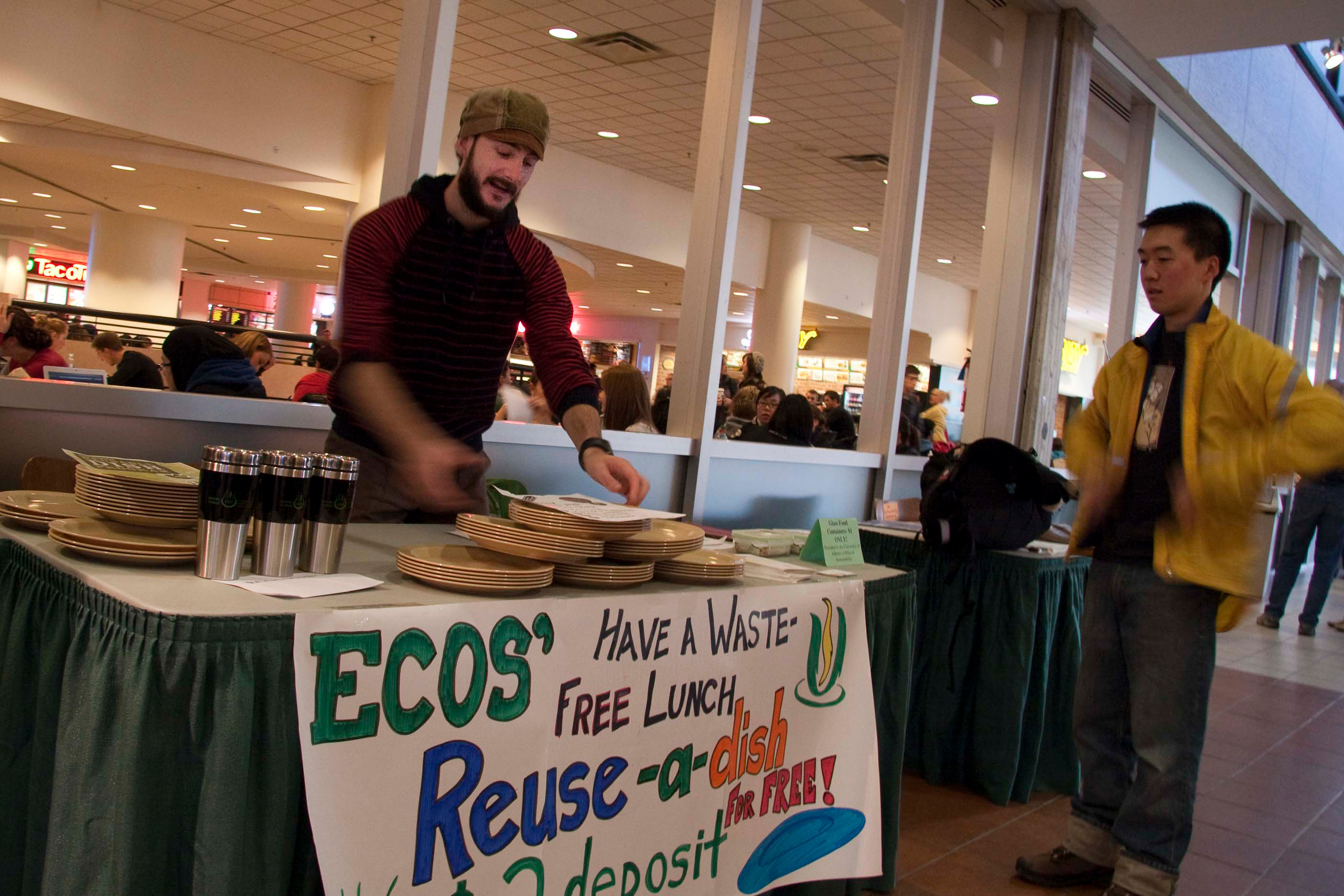Grad student calls for reusable takeout containers at the U of A
One thing I’ve been missing during last year’s lockdown was the on-campus life: interacting with other students and professors, sitting in actual classrooms, walking in the sun between classes, and grabbing lunch takeout or tea from the many restaurants or cafés around the university.
But what I haven’t missed is the amount of non-reusable, non-recyclable packaging that this food and drink comes in. The amount of garbage I generate in a day always spikes whenever I eat on campus, and that’s not the normal to which I’m longing to return.
Sure, I could bring my own containers, but where am I going to keep them, or wash them, or how will I carry them, or even remember to take them with me to campus in the first place? I have library books taking up my backpack and deadlines taking up my brainspace.
Give us access to washable, reusable takeout containers
This is part of the reason why I strongly feel that replacing all single-use plastic on campus with reusable options would help immensely with the University of Alberta’s engagement with the UN’s Sustainable Development Goals.
Having access to reusable takeout containers and mugs in HUB Mall, Central Academic Building, and all the other food courts (not just the Students’ Union Building) would vastly reduce the amount of waste on campus, change corporate buying habits to invest in more sustainable options, and prevent large amounts of money from going towards fossil fuel extraction.

Providing reusable containers for all students would also help to level the playing field; often there are monetary barriers to overcome in order to be sustainable. As an undergrad, I used to joke that I wasn’t rich enough to be ethical, because quality reusable containers and local/organic/sustainable food cost money—money I needed for other things like rent and tuition.
I felt awful contributing to plastic waste, litter, the fossil fuel extraction industry, the industrial farming conglomerates, destruction of habitat on land and dirtying of the water table, not to mention polluting the air we breathe ... but I had no choice in the matter.
Empowering people does not mean downloading the responsibility for living a green life on to each individual, but rather changing the systems and structures that make it easy to use single-use, polluting, unsustainable materials in everyday life.
Cultivating a love of the land is hard when even the seemingly simple act of grabbing food because you're hungry after a morning full of lectures means contributing to actively degrading that land through fossil fuel extraction, polluting groundwater and choking animals out of their habitats—and that’s just considering the production process of the plastic forks.
Empowering students to act on their love of the land is crucial. Undergraduates are not often empowered to really do anything except buy textbooks and choose what they want for lunch from an array of fast foods. Making it easy to live lightly on the land should be a clear goal for the University of Alberta; many students by 3rd and 4th year know all about the environmental damage done by plastics but have no real way to do anything about it. Allow them to do something about it. Allow them to put their learning to work.
Ariel’s Resources for a Plastic-Free Campus
Sustain SU’s Reusable Dish Program lends out dishes in the Students’ Union Building food court. Plates are free to use and get you a $0.25 discount with participating vendors.
The Engineering Students’ Society piloted a mug share program in the Donadeo building, helmed by Allegra Martel and Celine Fong, that let students borrow mugs for free.
What could we learn from other post-secondaries in Canada?
UBC’s Mugshare lets students pay a deposit to borrow a mug. Return it and you get your deposit back, while the mug is washed and available again for the next student.
McGill’s Ban the Bottle Project ran in 2017–18, attempting to both bring in policies prohibiting the sale of bottled water while also increasing access to water fountains (including the installation or improvement of 25 water fountains).
University of Toronto Scarborough offers reusable green plastic, clamshell-style takeout containers in the H-Wing Marketplace. Joining the program costs $5, but grants a $0.50 discount on each meal.
McMaster's Choose to Reuse program offers a similar program, but a $5 membership card grants a $0.25 discount on each meal.
About the author
Ariel Kroon is a PhD candidate in the department of English and Film Studies at the University of Alberta. Her research investigates anglophone and francophone post-apocalyptic fiction published in Canada between 1948 and 1989. She analyzes the imagination of crisis and disaster from an ecological standpoint, and is in the process of evaluating these texts as the grounds of an alternate imaginary, one inflected by authors’ struggles with gendered identity, colonial rule, environmental consciousness, cultural continuance, and the ever-present threat of a nuclear apocalypse.